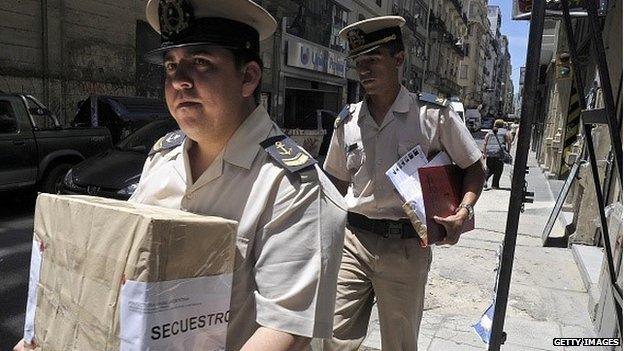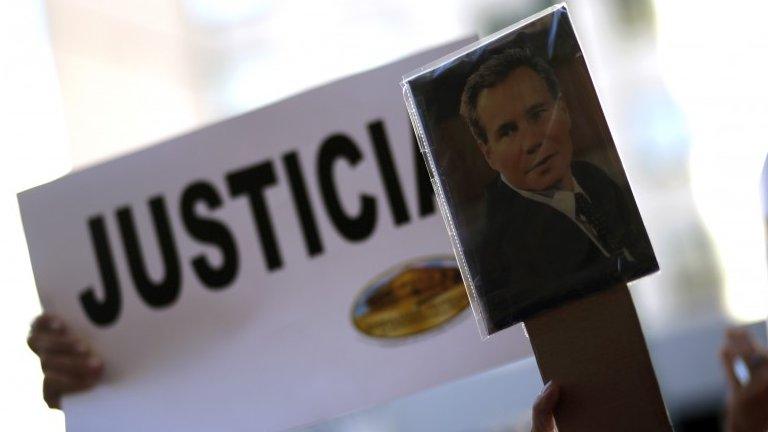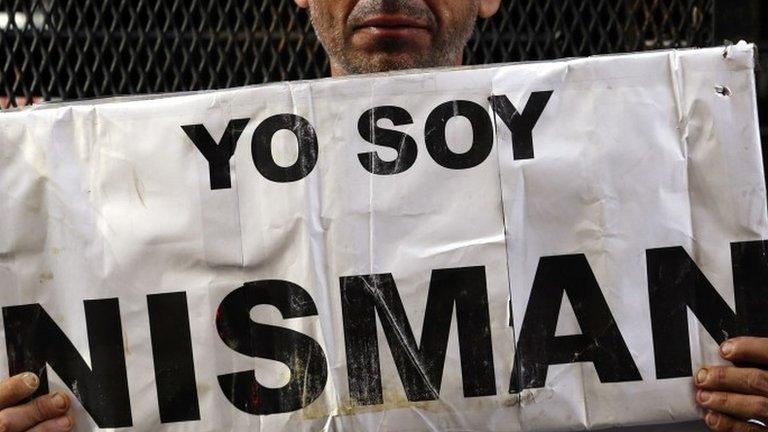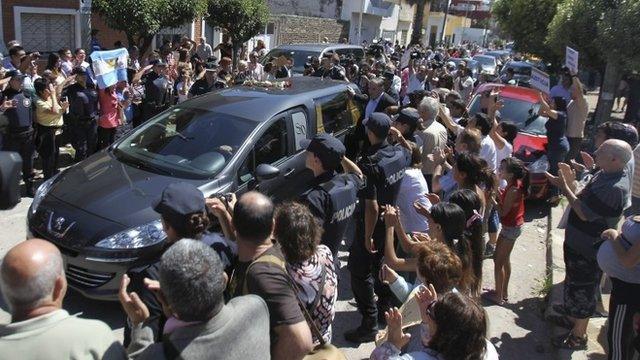Dead prosecutor Nisman 'planned president's arrest'
- Published

Evidence from the Alberto Nisman case is being moved to the offices of investigator Viviana Fein
Argentine prosecutor Alberto Nisman drafted an arrest warrant for President Cristina Fernandez de Kirchner, according to the woman investigating Mr Nisman's mysterious death.
Lead investigator Viviana Fein said the draft warrant was found in a rubbish bin in Mr Nisman's apartment complex.
Mr Nisman was found dead in his Buenos Aires apartment last month, with a single bullet wound to the head.
Investigators have yet to establish if he killed himself, or was murdered.
Mr Nisman had been investigating the 1994 bombing of a Jewish centre in Buenos Aires which killed 85 people.
He died hours before he was due to testify in Congress against President Fernandez, whom he had accused of covering up alleged Iranian involvement in the 1994 attack.
President Fernandez has denied the allegation. Iran has also denied involvement in the attack.
U-turns
Ms Fein told a local radio station on Tuesday that the draft warrant was "on file", and that a previous statement from her office saying that no such draft had been found was "erroneous".
Opposition newspaper Clarin had published a copy of the draft , externalon Monday.
The document, dating from June 2014, requested the arrest of President Fernandez and Foreign Minister Hector Timerman.
However, it was not included in a 300-page report submitted by Mr Nisman to a federal court days before his death.
Under Argentine law, the president and the foreign minister could only be arrested if Congress first lifted the immunity granted to them as members of the executive.

Analysis: Wyre Davies, BBC News, Buenos Aires
Horacio Verbitsky, one of Argentina's most experienced journalists and human rights investigators, told me in his Buenos Aires flat last week: "There's no point trying to speculate who killed Nisman, because we just don't know."
Mr Verbitsky is, of course, dead right. Alberto Nisman probably alienated many people as, with the zealous attitude of a man on a mission, he put the finishing touches to his controversial report into the 1994 bombing. But that does not mean any of the people he criticised in the report were responsible for his death.
Having initially dramatically denied the existence of the draft arrest warrants by ripping up copies of the newspaper that first carried the reports, a government spokesman has now been forced into an embarrassing climb-down, and that does look bad for the president.
So does the apparent pressure the government continues to put on case investigators and fringe players by relentlessly commenting on what should be an independent judicial investigation.
What is particularly worrying here, beyond the personal tragedy of Alberto Nisman's death, is not that this happened in Argentina - such murky deeds could happen in any city in any country. It is the fact that most Argentines clearly do not expect their government or its institutions to get to the truth, just as the 1992 and 1994 atrocities remain unresolved.

When Clarin first published the draft warrant, the government reacted angrily, dismissing the report as "garbage".
President Fernandez had also originally described Mr Nisman's death as suicide.
However, in a televised speech last week, the president suggested that rogue elements in Argentina's intelligence service had fed Mr Nisman false information and manipulated him.
She announced plans to dismantle the Intelligence Secretariat (SI) and called for a special session of Congress to discuss a draft bill to that effect.
- Published5 February 2015

- Published28 January 2015

- Published29 January 2015
